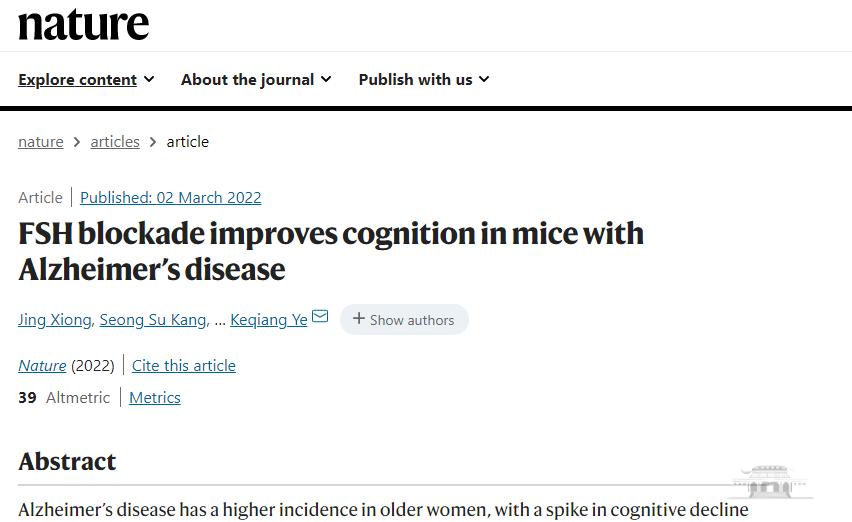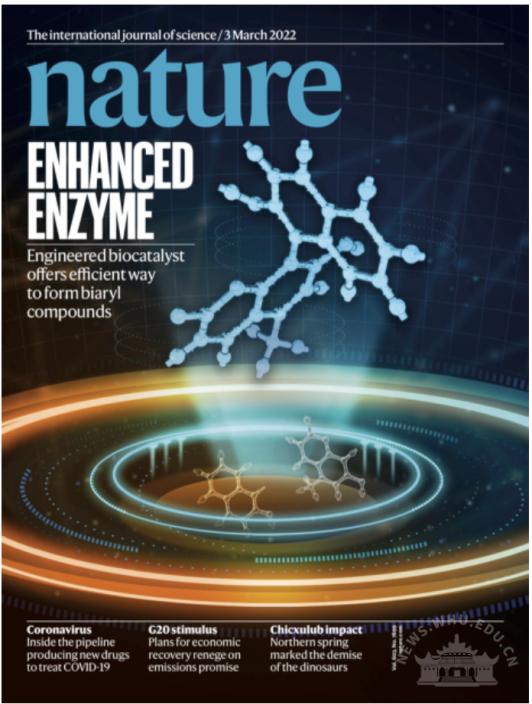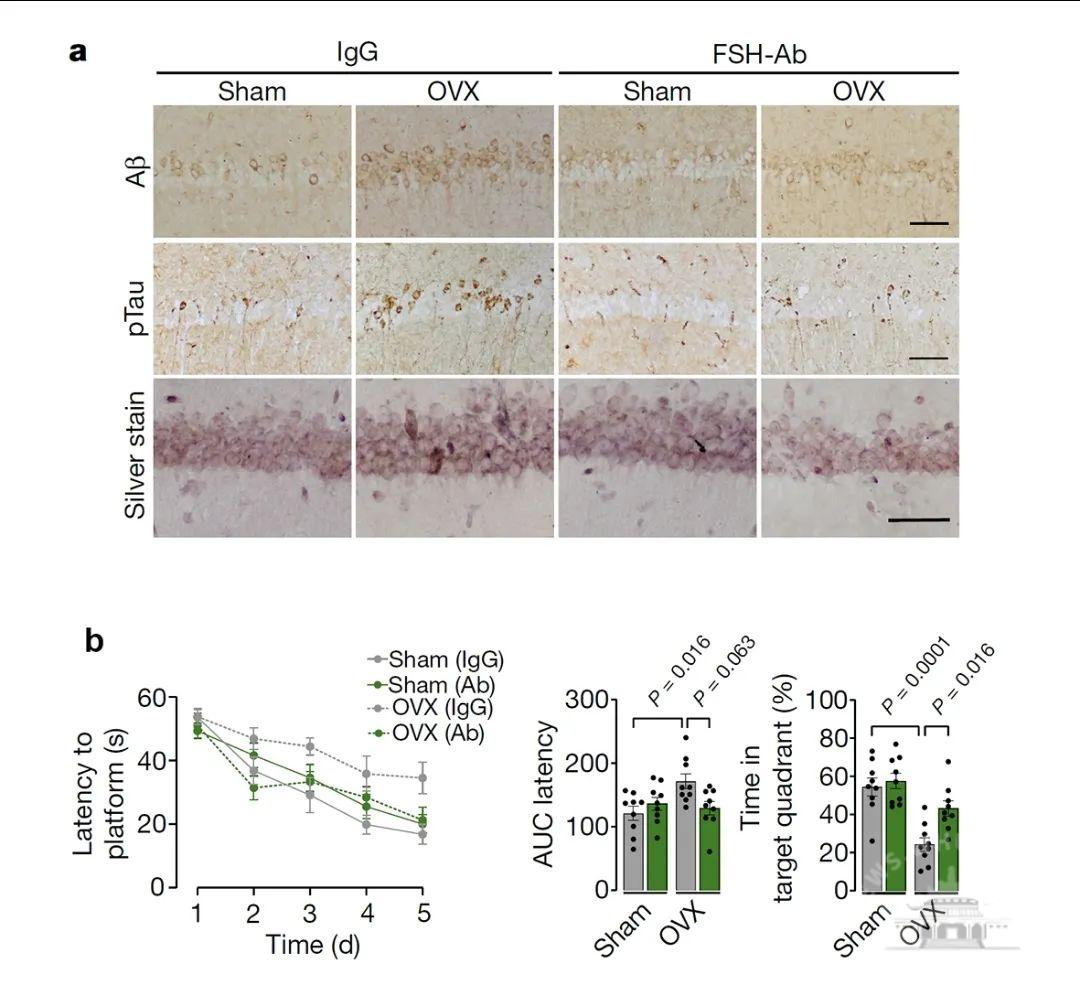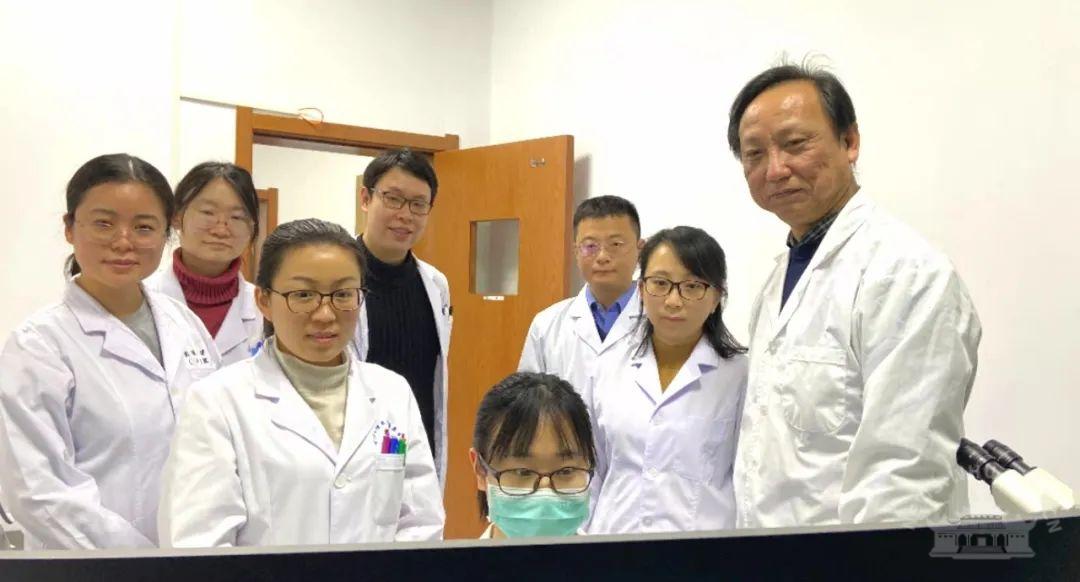Early on March 3, Beijing time, the latest issue of the world's top academic journal Nature (Impact Factor 49.962) published online the research paper FSH Blockade Improves Cognition in Mice with Alzheimer's Disease(AD) by Xiong Jing, deputy chief physician of the Department of Neurology of Renmin Hospital of Wuhan University. The research findings are the first in the world to reveal that follicle-stimulating hormone is the cause of older women's higher vulnerability to AD, providing a new option for early screening and intervention in the disease.

Screenshot of this paper

The cover of the latest Nature issue
Xiong Jing, the first author of the paper, has long been engaged in the basic research, clinical diagnosis and treatment of senile neuro-degenerative diseases in the Department of Neurology of Renmin Hospital of Wuhan University. Funded by the National Foundation for Study Abroad in 2018, Wuhan University's "Young Top Talent Training Abroad (Overseas) Research Plan" in 2019, and the Young Talents Abroad Training Program of Renmin Hospital of Wuhan University, she went to study the pathogenesis of Alzheimer ’s disease abroad.

Xiong Jing, deputy chief physician, the first author of the paper
According to Xiong Jing, AD is an age-dependent neuro-degenerative disease and the most common cause of senile dementia. The main clinical manifestations are memory dysfunction, behavioral abnormalities and decreased ability to perform daily living. Every three seconds, a person is diagnosed with AD, and there are currently more than 50 million patients worldwide. With the advent of an aging society, this number is expected to increase significantly to 152 million in 2050. Epidemiological surveys show that the number of female AD patients among the elderly is about twice that of men, but the cause of this phenomenon has been unknown.

The neuro-degenerative disease research team consults patients with AD
Prof. Ye Keqiang (former tenured professor of Emory University), the corresponding author of the paper, has been committed to research on the pathogenesis, early diagnosis and drug development of neuro-degenerative diseases for many years. Based on the systematic summary of the results of hundreds of cutting-edge academic papers by the team, he proposed an original theory: the activation of the C/EBPβ-AEP pathway is the core driver of neuro-degenerative diseases.
Based on this theory, Xiong Jing and other researchers studied the hormonal substances whose concentrations vary dramatically in women before and after menopause, and tested which hormones can selectively activate the C/EBPβ-AEP pathway. This newly published paper reveals for the first time that elevated follicle-stimulating hormone (FSH) is an important reason why older women are more likely to develop AD than men. During perimenopause, FSH levels in women increase significantly to more than 10-fold, while FSH levels in older men are about three times higher than when they were younger. In premenopausal women, the sharp increase in FSH exacerbates Aβ and Tau lesions in the brains of AD patients by activating the C/EBPβ-AEP signaling pathway, leading to memory impairment. This important finding not only provides a new reason and mechanism for why women are more likely to develop AD, but also provides a new target for early clinical screening and intervention in AD.

FSH antibody treatment can reduce AD-related pathological changes and cognitive function in AD mice after ovarian resection

Neuro-degenerative disease research team of Renmin Hospital of Wuhan University
Prof. Zhang Zhaohui and Prof. Wang Zhihao of the Department of Neurology also made important contributions to this research. The publication of this paper provides an important theoretical basis for the prevention and treatment of neuro-degenerative diseases worldwide.
The Department of Neurology of the People's Hospital of Wuhan University is known as a national key clinical construction specialty with a strong and powerful research team of neuro-degenerative diseases, including Prof. Zhang Zhaohui, Prof. Zhang Zhentao, Prof. Wang Zhihao and other well-known experts in the field of neuro-degenerative disease research. The team members have won support from many national and provincial research and talent programs. The team focuses on the pathogenesis and early diagnosis and treatment of AD and Parkinson's disease and has published in Nature, Nature Medicine, Nature Structural & Molecular Biology, Nature Communications, Molecular Cell, Advanced Science, Science Advances, Journal of Experimental Medicine, Molecular Psychiatry and other top international journals.
Link to the paper: https://doi.org/10.1038/s41586-022-04463-0
Rewritten by Xie Anqing
Edited by Shen Yutian, Su Xinyue, Zou Xiaohan, Xi Bingqing, Sylvia